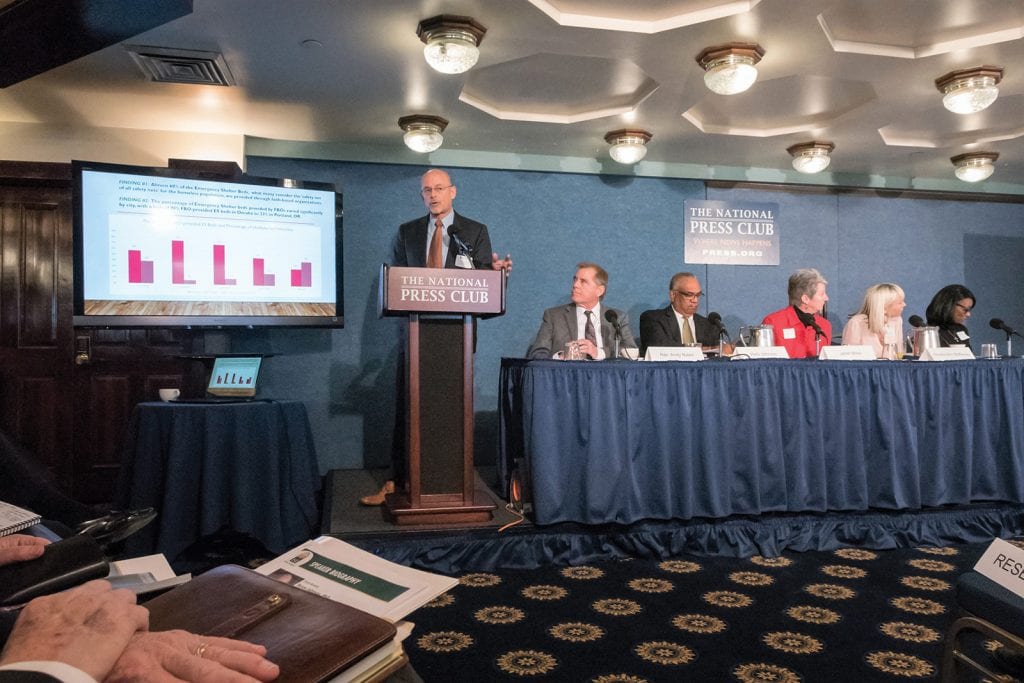On February 1, Baylor University’s Institute for Studies of Religion released the findings of a new study at the National Press Club in Washington, D.C., that detail how faith-based organizations stand at the forefront of addressing root causes of homelessness, providing not only the majority of emergency shelter beds but also innovating long-term solutions.
Subsequently reported on by a number of news outlets, ranging from CBS News to The Weekly Standard, the study looked at homelessness in 11 sample cities and is part of a growing body of independent research examining the socio-economic impact of faith-based organizations across the United States.
“The data in this study sheds light on the largely overlooked, significant role of the multi-faith sector in addressing the homelessness challenge in urban and rural communities and doing so in innovative ways,” said Byron R. Johnson, Ph.D., Distinguished Professor of Social Sciences and director of the Institute for Studies of Religion. “This research is helpful because it reveals the mainly untold story of the socio-economic impact of faith-based organizations on the common good health and flourishing of whole communities.”
According to the study, faith-based organizations provide 58 percent of emergency shelter beds in the 11 cities surveyed across the nation. They also provide an array of vital services and personalized interventions such as education, healthcare, job training and addiction recovery necessary for long-term recovery and independence. As a result, the study estimates that faith-based organizations create $9.42 in taxpayer savings for every $1 invested by the government. It further shows an estimated $119 million in tax savings in the 11 cities during the three years following implementation of faith-based Residential Recovery and Job Readiness programs.
According to the Baylor study, Residential Recovery and Job Readiness programs are an area where faith-based organizations are “at the forefront of program innovation and organizational transformation for improving positive outcomes for the homeless individuals and families.”
The research also illuminates how collaboration among faith-based organizations, community groups, private industry and local, state and federal government agencies creates the strongest responses to homelessness and its underlying issues.

